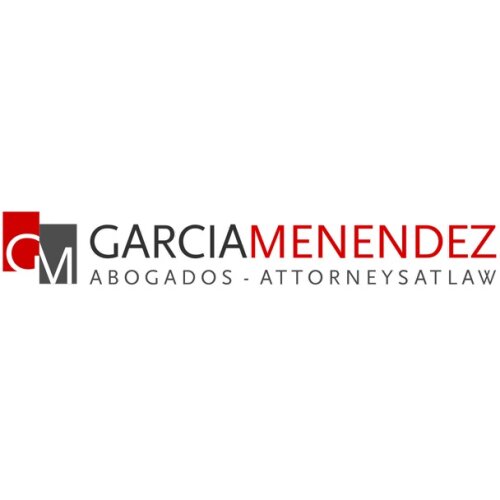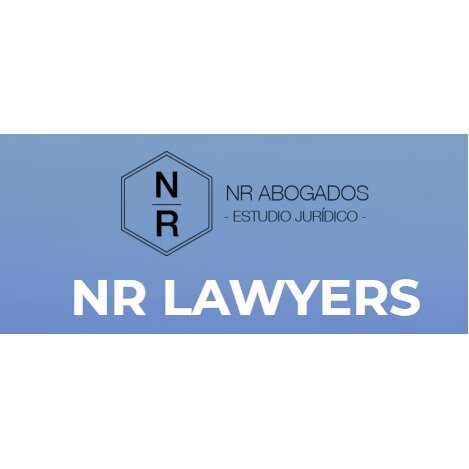Best ESG Advisory & Compliance Lawyers in Buenos Aires
Share your needs with us, get contacted by law firms.
Free. Takes 2 min.
List of the best lawyers in Buenos Aires, Argentina
About ESG Advisory & Compliance Law in Buenos Aires, Argentina
ESG, which stands for Environmental, Social, and Governance, has become a central topic for businesses and investors worldwide. In Buenos Aires, Argentina, ESG Advisory & Compliance refers to the legal frameworks and professional guidance designed to help organizations meet standards related to environmental impact, social responsibility, and transparent business governance. This field ensures that companies not only comply with local and international regulations related to sustainability and ethical conduct but also position themselves as responsible actors in the market. As ESG principles gain local importance, legal specialists play a key role in helping companies align operations with best practices and mandatory requirements.
Why You May Need a Lawyer
There are various situations in which individuals or companies in Buenos Aires may require legal support for ESG Advisory & Compliance. If you are establishing or operating a business that must align with environmental regulations, labor laws, equal opportunity mandates, or anti-corruption standards, professional legal advice can help you avoid penalties and reputational risks. Lawyers assist with the creation and review of ESG policies, due diligence for mergers and acquisitions, reporting obligations, stakeholder disclosures, regulatory compliance checks, and resolving disputes related to ESG concerns. Legal expertise ensures that your business not only meets minimum statutory requirements but also implements best practices for sustainable growth and access to ESG-focused investment opportunities.
Local Laws Overview
In Buenos Aires, ESG Advisory & Compliance is governed by a combination of national laws, municipal codes, and sector-specific regulations. Notable legal areas include environmental protection acts, anti-discrimination laws, corporate governance frameworks, anti-corruption measures, and financial disclosure requirements. Argentina’s legal landscape is also influenced by international commitments such as the Paris Climate Agreement and various human rights initiatives. Locally, Law 25.675 (General Environmental Law), Law 27.401 (Corporate Criminal Liability for Corruption), and standards set by the Comisión Nacional de Valores (CNV - National Securities Commission) form the core pillars for ESG compliance. Compliance mandates may vary by industry, making it essential for companies to stay updated on new regulations and evolving best practices specific to their sector and size.
Frequently Asked Questions
What does ESG mean in the context of Argentine law?
ESG stands for Environmental, Social, and Governance criteria. Under Argentine law, these criteria guide businesses on practices related to protecting the environment, ensuring fair labor and ethical social behavior, and maintaining transparent corporate governance.
Is ESG compliance mandatory in Buenos Aires?
Some ESG elements, like environmental protection and anti-corruption laws, have binding legal requirements. While comprehensive ESG disclosure is not yet universally mandatory for all businesses, regulations are tightening, especially for publicly listed and larger companies.
What are the main risks for businesses that ignore ESG compliance?
Non-compliance can lead to regulatory fines, criminal sanctions, reputational damage, loss of access to financing, and exclusion from certain markets or government tenders.
Who enforces ESG-related laws in Buenos Aires?
Several authorities have roles, including the National Securities Commission (for financial reporting), the Environmental Protection Agency, labor courts, and anti-corruption offices.
Do private companies have ESG reporting obligations?
Currently, listed companies face more stringent ESG reporting duties, but private entities are increasingly expected by stakeholders, investors, and clients to demonstrate ESG compliance and may be required to provide some disclosures depending on their industry.
What are some common ESG compliance challenges in Buenos Aires?
These include keeping up with changing legislation, ensuring data accuracy for non-financial disclosures, integrating ESG into corporate strategy, and training staff on ESG policies.
Can foreign companies avoid local ESG requirements?
No. Foreign companies doing business in Argentina, including Buenos Aires, must comply with local ESG regulations and standards, regardless of where their parent company is based.
How can a lawyer help with ESG due diligence?
Lawyers conduct legal audits to identify weaknesses, prepare documentation, verify compliance with all relevant regulations, and provide guidance on corrective actions to minimize legal exposure and ensure best practices.
Are there incentives for businesses that lead in ESG compliance?
Yes. These can include improved access to sustainable finance, reputational benefits, preferential treatment in some tenders, and better relationships with stakeholders and regulators.
Are ESG legal standards expected to change soon in Argentina?
Yes. ESG regulations are evolving rapidly, and legal standards are expected to become stricter, especially regarding environmental disclosures and anti-corruption measures. Keeping up to date with the latest developments is essential.
Additional Resources
Individuals or businesses seeking more information can consult the following resources:
- Comisión Nacional de Valores (CNV) for financial market regulations and ESG reporting updates
- Secretaría de Ambiente y Desarrollo Sustentable for environmental legislation and compliance guidelines
- Oficina Anticorrupción (Anti-Corruption Office) for best practices and regulatory updates on anti-bribery and governance
- Argentine Chamber of Commerce and local professional associations offering ESG-related training and seminars
- Legal publications and government websites for the latest laws, decrees, and judicial decisions affecting ESG issues
Next Steps
If you require legal advice or representation for ESG Advisory & Compliance in Buenos Aires, consider taking the following steps:
- Gather all relevant documentation regarding your company’s policies, reporting practices, and recent regulatory communications
- Make a list of your specific questions or concerns about ESG compliance
- Consult with a specialized ESG lawyer in Buenos Aires who understands both local and international regulations
- Request an initial assessment or compliance audit to identify gaps and create an action plan
- Stay informed about evolving ESG regulations that may affect your business or organization
Taking proactive legal steps in ESG Advisory & Compliance can help ensure your organization operates safely, responsibly, and sustainably amidst a changing regulatory environment in Buenos Aires, Argentina.
Lawzana helps you find the best lawyers and law firms in Buenos Aires through a curated and pre-screened list of qualified legal professionals. Our platform offers rankings and detailed profiles of attorneys and law firms, allowing you to compare based on practice areas, including ESG Advisory & Compliance, experience, and client feedback.
Each profile includes a description of the firm's areas of practice, client reviews, team members and partners, year of establishment, spoken languages, office locations, contact information, social media presence, and any published articles or resources. Most firms on our platform speak English and are experienced in both local and international legal matters.
Get a quote from top-rated law firms in Buenos Aires, Argentina — quickly, securely, and without unnecessary hassle.
Disclaimer:
The information provided on this page is for general informational purposes only and does not constitute legal advice. While we strive to ensure the accuracy and relevance of the content, legal information may change over time, and interpretations of the law can vary. You should always consult with a qualified legal professional for advice specific to your situation.
We disclaim all liability for actions taken or not taken based on the content of this page. If you believe any information is incorrect or outdated, please contact us, and we will review and update it where appropriate.
















